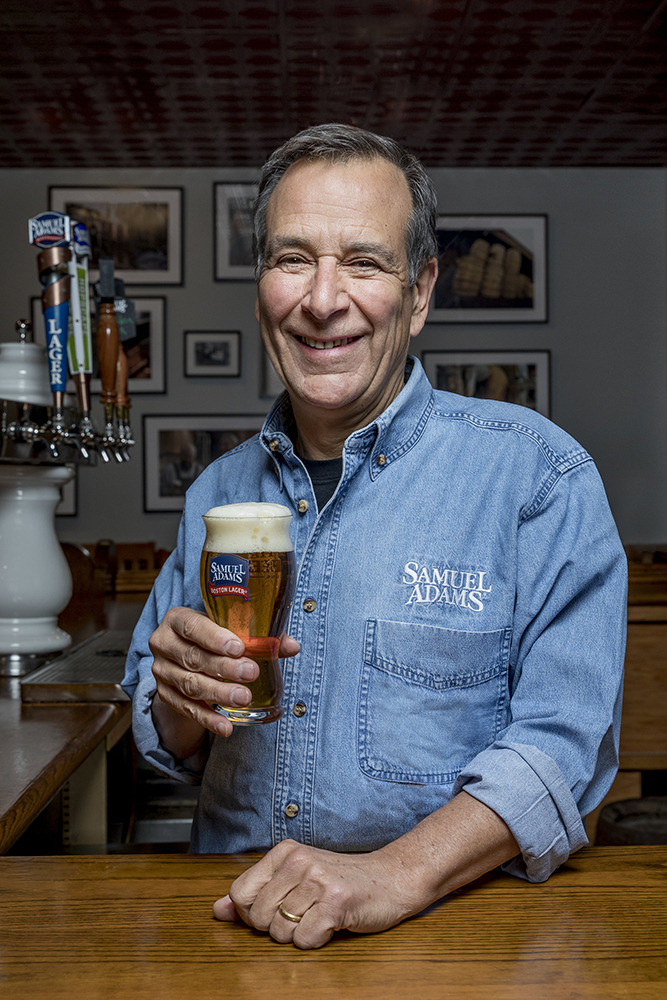Spirits equalization legislation poses a threat, but beer is up to the challenge.
“After a decade of declines, the beer industry started growing again in the second half of 2019. That growth continued in 2020 and has accelerated in 2021. This change in trend has been driven by beer’s success in the fourth category – the white space between traditional beer, wine and spirits, where innovations like hard seltzers and FMBs have successfully created new demand by offering drinkers new choices.”
“That growth is now threatened by our very capable and determined friends at the Distilled Spirits trade association (DISCUS) and the big spirits companies.”

Jim Koch, founder of Boston Beer Company, penned these words in April, stunning the beverage alcohol industry. In an open letter to the heads of the Brewers Association (BA), the Beer Institute (BI) and the National Beer Wholesalers Association (NBWA), Koch warned of the spirits industry’s multi-pronged plan to steal consumers away from beer. In particular, he says, beer should remain vigilant against tax “equalization,” lowering taxes on lower-alcohol, spirits-based RTDs to bring them in line with beer, hard seltzers and FMBs.
“[DISCUS and spirits companies] have publicly stated that they can reduce beer volume by 45 million barrels if they succeed,” he wrote. “That is almost as big as all Mexican import and craft beer combined. If they succeed in changing state regulations, instead of a future of growth, the beer industry would face virtually permanent declines in volume, revenue and profits.”
Koch wrote that the spirits industry wants to expand outside of their traditional retailers and reduce the taxes they pay – or even increase beer taxes. And while the spirits world ultimately wants to reach complete equalization for all their products, legislation centered around spirits-based canned cocktails represents the beginning of a “slippery slope.”
In New Jersey, which currently taxes spirits at $5.50 per gallon, legislation is being considered which calls for a lower tax rate for liquor less than 9.9% ABV (which includes most spirits-based canned cocktails). The existing tax rate constitutes a significant financial barrier to the success of spirits-based canned cocktails in the state. If tax rates were to change, the playing field would tilt in spirits’ favor and malt-based offerings could suffer.
But while the situation is dire, Koch stresses that there’s still time to snatch hard seltzers and FMBs from spirits’ clutches. If the industry wakes up and works together, he says, they can press their natural advantages – history of innovation, efficiency and experience, among others – in the RTD space.
“All of us in the beer industry should get our act together to push back against this growing campaign aimed at taking away beer’s newfound growth,” he wrote.
“We need a unified and effective response. We need the collective strength and leadership of our industry associations, the BA, BI and NBWA. We need [these organizations] to unite us with one message and one mission. Together, we are heavy.”
The industry seems to be taking heed. Titans like Anheuser-Busch, Boston Beer Company, Constellation Brands’ Beer Division, Heineken USA, Mark Anthony Brands International and Molson Coors Beverage Company – just to name a handful – recently came together in a never-before-seen coalition to oppose the proposed equalization legislation in New Jersey, arguing that the history of alcohol beverage taxation in the United States and across the world favors a lower tax rate for malt-based beverages over liquor of any kind. So far, their efforts have worked – at the end of June, it was reported that the bill was pulled from a vote, a serious reprieve for beer.
At press time, there were three more opportunities for the Assembly to vote on the bill, as well as an opportunity for it to be considered in November after a recess. This is still an active fight, possibly for the future of the beer business. As BI President and CEO Jim McGreevy told Brewbound in April, equalization of the tax rates between beer and spirits is “an existential threat to the beer business.”
Or, as Koch put it: “For twenty years, spirits companies have eaten our lunch… Let’s not let them eat our dinner.”
